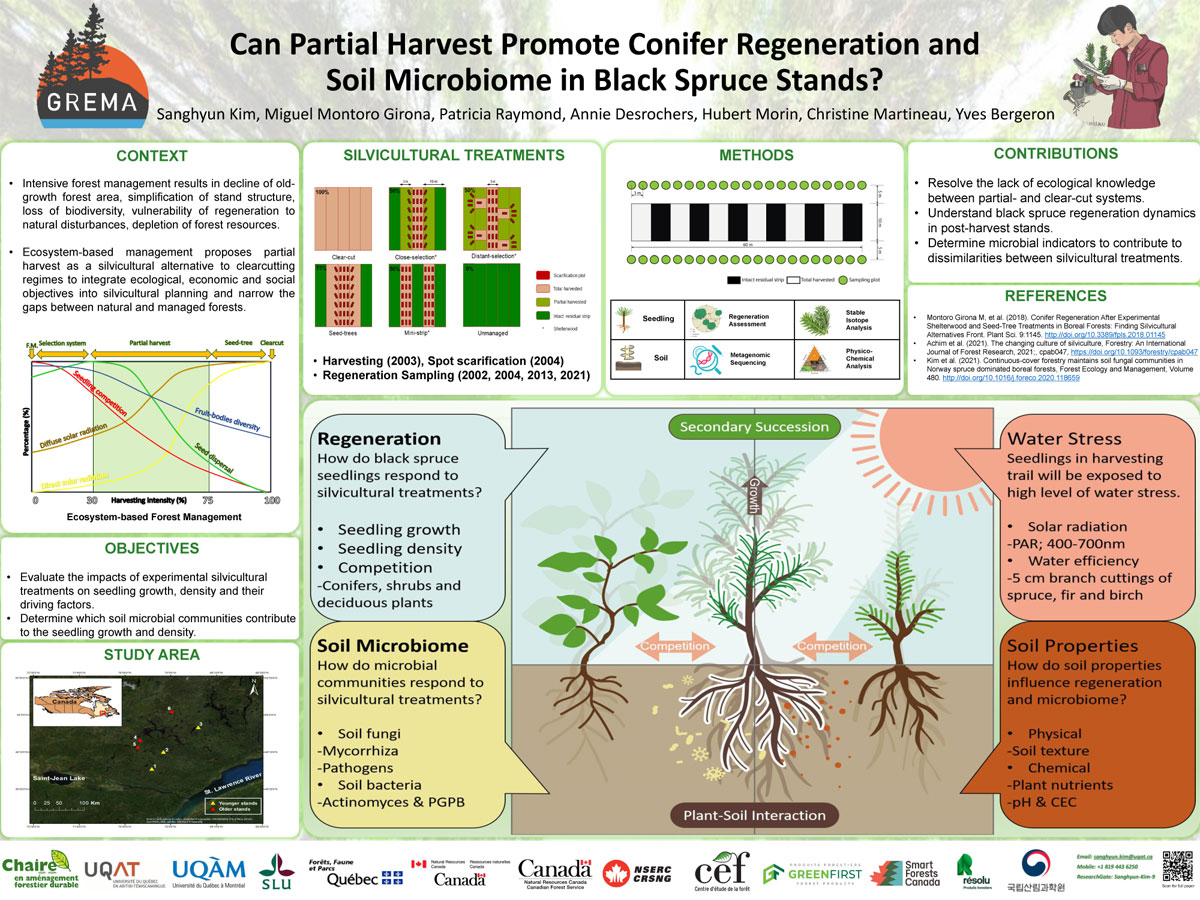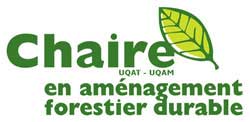
Partial harvest is considered as a promising alternative to clearcutting system to integrate ecological, economical, and social objectives into silvicultural planning. Logging activity alters habitat conditions for plant and microbial communities in the understory and consequently influences ecosystem processes such as nutrient cycling. Even with their major implication for forest management, little is known of overstory retention levels that promote regeneration and microbiome in boreal forests. The aim of our study is to evaluate the effects of partial harvests (50-75% of basal area removal) on regeneration and microbiome in natural even-aged black spruce (Picea mariana (Mill.) B.S.P.) stands 18 years after silvicultural intervention. An experimental design with six sites (younger and older stands) and silvicultural treatments (clearcut, seed-tree, three variants of shelterwood, unmanaged) was established by Canadian Forest Service in Monts-Valin and North Shore regions of Quebec. First, we will analyze the effects of the silvicultural treatments and stand structure on seedling growth and density and their driving factors such as seedling competition, soil properties, solar radiation, and water efficiency. Second, the effects of the silvicultural treatments on soil microbiome will be studied by applying state of the DNA metabarcoding techniques and soil physicochemical analyses. We expect that uniform shelterwood systems will be an efficient silvicultural alternative to clearcutting for regeneration and microbiome by providing intermediate level of disturbances in black spruce boreal forests. Therefore, this study will understand regeneration driving factors as a whole to gain knowledge of the ecological dynamics in postharvest stands in boreal forests.
